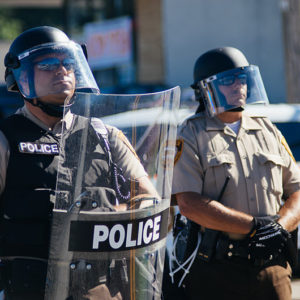Bob Dylan sang: “The cops don’t need you and, man, they expect the same” (in Just Like Tom Thumb’s Blues).
I’ve always enjoyed the cynical humor, but never knew it was the law — until recently, when I learned that the police have no obligation to protect you against imminent threat.
As crazy as it sounds, it has been affirmed in a string of Supreme Court and lower court cases.
Just a few months ago, a federal judge in Florida dismissed a case brought by students from Marjory Stoneman Douglas High School, who sued the police for failing to protect the school from the assailant who murdered 17 people there in 2018. The judge said the police had no Constitutional duty to protect someone who was not already in police custody.
The ruling was in line with an infamous Supreme Court decision in 2005 that exonerated police in Colorado for refusing to go after a man who kidnapped his three young daughters, in defiance of a restraining order, and then murdered them, even while their mother repeatedly begged the police to act.
Writing for the majority in Castle Rock vs. Gonzales, Justice Antonin Scalia acknowledged that Colorado’s own statutes required the police to arrest the violator of a restraining order, but ruled that “a well-established tradition of police discretion” overrides the state law.
The nub of the issue is that we have in this country what is often referred to as a “negative Constitution” — it mostly protects people from the coercive power of the government, rather than forcing the government to guarantee benefits to citizens, like personal safety.
When they do enforce the law, the police are required to do so impartially, so the doctrine of police discretion does not excuse the systemic racism that infects so many police departments across the land.
But so long as police don’t discriminate in their failure to enforce the law, nothing in the Constitution forces them to act, even when a person is being attacked.
Defenders of this principle warn that if the police were required to protect every citizen against every threat we would quickly degenerate into a police state. Gun advocates urge everyone to own firearms, since there is no Constitutional right to police protection.
Of course, most police officers believe in the motto “To Protect and Serve” and stand faithfully between private citizens and those who would do them harm. But cases like Douglas High School and Castle Rock — and there are many more — highlight the need to strengthen the obligation of the police to intervene in moments of crisis.
Police discretion to stand by is not absolute. For example, police have a duty to protect those with whom they have a “special relationship,” such as a prisoner, and those they themselves have put in danger, such as by pulling over a car in heavy traffic. Also, police officers can be held liable for negligence.
These nascent rights to police protection can be reinforced, and state legislatures are where it needs to happen, because police power is delegated to the states in our Constitution.
Now is the time for action, as the effort of groups such as Black Lives Matter forces a re-examination and redefinition of the role of police in state capitals across the country.
We should use this historic opportunity to forge a new balance between police authority to use force and police obligation to protect those most in need.

